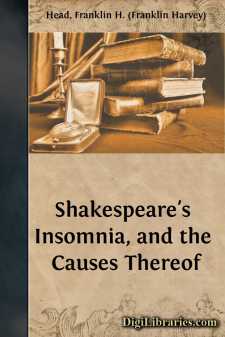Categories
- Antiques & Collectibles 13
- Architecture 36
- Art 48
- Bibles 22
- Biography & Autobiography 815
- Body, Mind & Spirit 144
- Business & Economics 28
- Children's Books 18
- Children's Fiction 14
- Computers 4
- Cooking 94
- Crafts & Hobbies 4
- Drama 346
- Education 58
- Family & Relationships 59
- Fiction 11834
- Games 19
- Gardening 17
- Health & Fitness 34
- History 1378
- House & Home 1
- Humor 147
- Juvenile Fiction 1873
- Juvenile Nonfiction 202
- Language Arts & Disciplines 89
- Law 16
- Literary Collections 686
- Literary Criticism 179
- Mathematics 13
- Medical 41
- Music 40
- Nature 179
- Non-Classifiable 1768
- Performing Arts 7
- Periodicals 1453
- Philosophy 65
- Photography 2
- Poetry 896
- Political Science 203
- Psychology 44
- Reference 154
- Religion 515
- Science 126
- Self-Help 85
- Social Science 83
- Sports & Recreation 34
- Study Aids 3
- Technology & Engineering 59
- Transportation 23
- Travel 463
- True Crime 29
Our website is made possible by displaying online advertisements to our visitors.
Please consider supporting us by disabling your ad blocker.
Shakespeare's Insomnia, and the Causes Thereof
Categories:
Description:
Excerpt
I.
Insomnia, the lack of "tired Nature's sweet restorer," is rapidly becoming the chronic terror of all men of active life who have passed the age of thirty-five or forty years. In early life, while yet he "wears the rose of youth upon him," man rarely, except in sickness, knows the want of sound, undreaming sleep. But as early manhood is left behind and the cares and perplexities of life weigh upon him, making far more needful than ever the rest which comes only through unbroken sleep, this remedial agent cannot longer be wooed and won. Youth would "fain encounter darkness as a bride and hug it in his arms." To those of riper years the "blanket of the dark" often ushers in a season of terrors,—a time of fitful snatches of broken sleep and of tormenting dreams; of long stretches of wakefulness; of hours when all things perplexing and troublesome in one's affairs march before him in sombre procession: in endless disorder, in labyrinths of confusion, in countless new phases of disagreeableness; and at length the morning summons him to labor, far more racked and weary than when he sought repose.
It has been of late years much the fashion in the literature of this subject to attribute sleeplessness to the rapid growth of facilities for activities of every kind. The practical annihilation of time and space by our telegraphs and railroads, the compressing thereby of the labors of months into hours or even minutes, the terrific competition in all kinds of business thereby made possible and inevitable, the intense mental activity engendered in the mad race for fame or wealth, where the nervous and mental force of man is measured against steam and lightning,—these are usually credited with having developed what is considered a modern and even an almost distinctively American disease.
As the maxim, "There is nothing new under the sun," is of general application, it may be of interest to investigate if an exception occurs in the case of sleeplessness; if it be true that among our ancestors, before the days of working steam and electricity, the glorious sleep of youth was prolonged through all one's three or four score years.
Medical books and literature throw no light upon this subject three hundred years ago. We must therefore turn to Shakespeare—human nature's universal solvent—for light on this as we would on any other question of his time. Was he troubled with insomnia, then, is the first problem to be solved.
Dr. Holmes, our genial and many-sided poet-laureate, who is also a philosopher, in his "Life of Emerson," has finely worked out the theory that no man writes other than his own experience: that consciously or otherwise an author describes himself in the characters he draws; that when he loves the character he delineates, it is in some measure his own, or at least one of which he feels its tendencies and possibilities belong to himself. Emerson, too, says of Shakespeare, that all his poetry was first experience.
When we seek to analyze what we mean by the term Shakespeare, to endeavor to define wherein he was distinct from all others and easily pre-eminent, to know why to us he ever grows wiser as we grow wise, we find that his especial characteristic was an unequalled power of observation and an ability accurately to chronicle his impressions....


